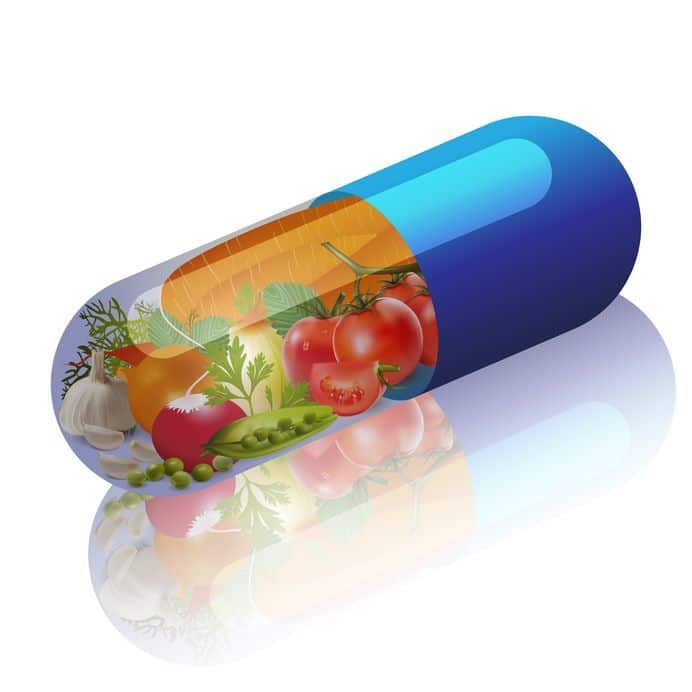
If you have been reading this newsletter for any time at all, you already know that I have grave doubts about the value of iron supplements.
I also have a very strong belief in the studies that show that iron buildup contributes to aging, dementia, Alzheimer’s, and generally to things just getting crummy as we get older.
So lower iron is often and usually better.
In this newsletter, we’re going to examine iron and the role of iron in aging.
And we’re going to show you a very promising way to raise your iron if your iron is low, without increasing your consumption of iron supplements or iron-rich foods.
So let’s take a look at the role of iron in aging.

Patients with Alzheimer’s or Parkinson’s show a dramatic increase in their brain iron content
When iron increases, it represents the most powerful source of free radicals.
Loose iron ions are a constant generator of vast numbers of free radicals that cells cannot control.
This is why it is so valuable to lower your iron stores.
Women who are menstruating will be bleeding every month.
They lose about 2 milligrams or so of iron each cycle.
But iron is added to everything containing flour in the US and much of the world.
By the time you add it all up, by age 65, a woman’s iron level is about the same as a man’s.
So, during menstruation anyway, women are somewhat protected against excess iron as blood does contain iron.
But men do not have this method of iron disposal.
And iron often builds up to very high levels in men.
 In this study, they restricted the iron in rats’ diets, and they found that lower tissue levels of iron led to longer life and a healthier life in rats.
In this study, they restricted the iron in rats’ diets, and they found that lower tissue levels of iron led to longer life and a healthier life in rats.
It may very well be that
the modulation of total iron is an important component of that aging.
So given this, a good question remains:
What is a good level of iron in the body?
The National Institutes of Health says that these are good ferritin levels, and ferritin is a fairly robust blood test for iron:
 I would aim for the lowest iron possible.
I would aim for the lowest iron possible.
But what if your doctor says you need more iron?
What about men who say that they are “anemic”?
It can be dangerous to consume iron.
We want to get rid of iron.
And a lot of times we have more than enough iron.
It’s just not being utilized properly.
So here is an excellent study out of China that has been replicated and verified by other studies:
 By giving fairly high doses of vitamin A (in the study they used retinol) over a few months, researchers were able to restore iron levels even without consumption of additional iron.
By giving fairly high doses of vitamin A (in the study they used retinol) over a few months, researchers were able to restore iron levels even without consumption of additional iron.
It seems that the intervention of VA supplement with relative high dose of retinol at dietary level could enhance the iron status further in no-anemic healthy adults even without dietary iron supplementation
This is great news if you have “anemia”.
Another crucial supplement that assists in fighting so-called “anemia” is vitamin K.
Erythropoietin is a factor found in the blood that tells the body to produce more red blood cells.
We don’t know why, but people with “anemia” are often low in erythropoietin.
Vitamin K stimulates erythropoietin, and it can, with the help of vitamin A, bring about a complete cure to “anemia” without the risk of consuming iron.
Talk to your doctor about any of these solutions or ideas, and don’t just take my word for anything.
This is a jumping off point for your own research.
It hopefully will help you recover from anemia in the best way possible, and avoid any chance of iron overload.
Citations
Effects of vitamin A supplementation on nutritional status of iron in healthy adults
http://www.ncbi.nlm.nih.gov/pubmed/23050440
Ferritin blood test
https://www.nlm.nih.gov/medlineplus/ency/article/003490.htm
Iron accumulation in aging: modulation by dietary restriction
http://www.sciencedirect.com/science/article/pii/S0047637498000050
Vitamin A supplementation in children with poor vitamin A and iron status increases erythropoietin and hemoglobin concentrations without changing total body iron
http://ajcn.nutrition.org/content/84/3/580.long
Click for more information on Vitamin A supplementation, for information on Living Healthy, or for more on Effects of vitamin A.
